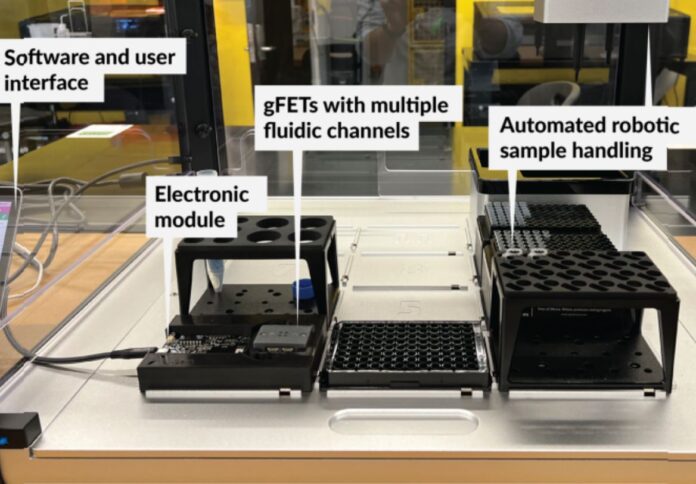
Archer Materials’ integrated biochip platform has entered an early-stage prototype with automated liquid sample handling and readout.
The development is a major milestone in Archer’s efforts to commercialise its biochip technology, which is designed to integrate graphene field effect transistors (gFETs) into advanced fluidic systems.
The technology is intended to create miniaturised lab-on-a-chip device platforms for medical diagnostics.
In an ASX announcement, Archer said the innovation could potentially enable multiplexing, or the ability to parallelise the detection of multiple biologically relevant targets fluids, on a chip.
According to the company, it has made significant progress over the last year in relation to the development of a prototype biochip technology system platform, with the fabrication of an operational liquid-gated gFET, such as a wettable transistor.
Mohammad Choucair, chief executive of Archer, said the system will allow its team to accurately, reliably, and efficiently collect data needed to establish commercial partnerships with global companies organising around the lucrative biosensing and diagnostics market.
Archer will now use the new technology to conduct trials and device optimisation that are commercially relevant.
The company also noted that the system platform setup is a powerful tool in advancing Archer’s biochip development, allowing for the enhancement of sensing device active sites and automating liquid delivery to the chip using feedback from the sensor itself. This would allow a complete hands-off and remotely controllable testing of prototype devices.
The system platform is also equipped with hardware and software capable of running a chip that uses single isolated gFETs as sensors, as gFETs offer an ultrasensitive approach to analyte detection over conventional electronic sensors used in current lab-on-a-chip devices.
“This is a significant step in the development of Archer’s biochip that has the potential for commercial applications,” Choucair said.
“Archer will focus on building advanced and sophisticated versions of this system which could be used in commercial or applied research settings.”



















